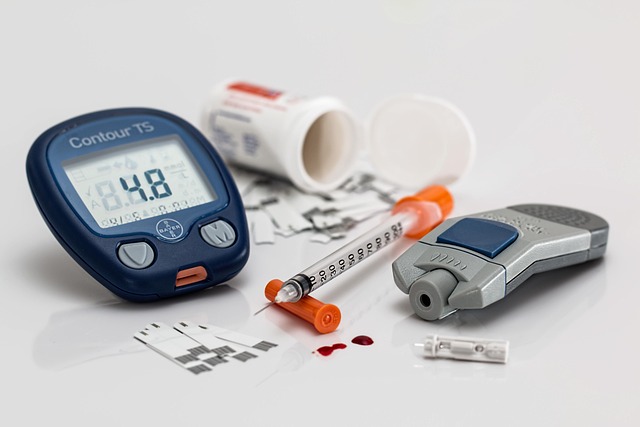Comprehensive Diabetes Treatment: Options, Management, and Support
Diabetes is a chronic condition affecting millions worldwide, requiring ongoing management and care. This article explores various diabetes treatment options, the role of diabetic clinics, and strategies for effectively managing the condition. From medication to lifestyle changes, we'll delve into the multifaceted approach needed to control blood sugar levels and improve quality of life for those living with diabetes.

What are the main types of diabetes and their treatments?
There are three primary types of diabetes: Type 1, Type 2, and gestational diabetes. Each type requires a tailored treatment approach. Type 1 diabetes, an autoimmune condition, necessitates lifelong insulin therapy through injections or an insulin pump. Type 2 diabetes, the most common form, may be managed through a combination of lifestyle changes, oral medications, and sometimes insulin. Gestational diabetes, occurring during pregnancy, typically resolves after childbirth but requires careful monitoring and management to protect both mother and baby.
How do oral medications and insulin therapy work in diabetes treatment?
Oral medications play a crucial role in managing Type 2 diabetes. Metformin, for instance, reduces glucose production in the liver and improves insulin sensitivity. Sulfonylureas stimulate the pancreas to produce more insulin, while DPP-4 inhibitors help the body use its own insulin more effectively. Insulin therapy, essential for Type 1 diabetes and some cases of Type 2, involves administering synthetic insulin to regulate blood sugar levels. This can be done through injections, pens, or insulin pumps, with various types of insulin (rapid-acting, long-acting, etc.) used to mimic the body’s natural insulin production.
What role do diet and exercise play in diabetes management?
Diet and exercise are cornerstones of diabetes management. A balanced diet rich in fiber, lean proteins, and healthy fats helps control blood sugar levels and maintain a healthy weight. Carbohydrate counting and portion control are essential skills for many diabetics. Regular physical activity improves insulin sensitivity, helps manage weight, and reduces the risk of cardiovascular complications. The American Diabetes Association recommends at least 150 minutes of moderate-intensity aerobic activity per week, along with resistance training for additional benefits.
How do diabetic clinics support patients in managing their condition?
Diabetic clinics offer comprehensive care and support for individuals with diabetes. These specialized clinics provide access to a multidisciplinary team of healthcare professionals, including endocrinologists, diabetes educators, nutritionists, and mental health specialists. Patients receive personalized treatment plans, education on self-management techniques, and regular check-ups to monitor their condition. Diabetic clinics also offer resources for blood glucose monitoring, insulin management, and addressing diabetes-related complications, ensuring patients receive holistic care tailored to their specific needs.
What are the latest advancements in diabetes treatment and technology?
Recent years have seen significant advancements in diabetes treatment and technology. Continuous glucose monitors (CGMs) provide real-time blood sugar data, allowing for more precise management. Smart insulin pens and automated insulin delivery systems, often referred to as “artificial pancreas” devices, combine CGM technology with insulin pumps to automate insulin dosing. New classes of medications, such as GLP-1 receptor agonists and SGLT2 inhibitors, offer improved glucose control with additional benefits like weight loss and cardiovascular protection. Research into stem cell therapies and immunomodulation for Type 1 diabetes shows promise for future treatment options.
How can individuals effectively manage diabetes in their daily lives?
Effective diabetes management involves integrating treatment into daily routines. This includes regular blood glucose monitoring, medication adherence, and maintaining a balanced diet and exercise regimen. Stress management techniques, such as meditation or yoga, can help control blood sugar levels affected by stress hormones. Adequate sleep and proper foot care are also crucial aspects of diabetes management. Building a support network, including family, friends, and diabetes support groups, can provide emotional support and motivation. Regular check-ups with healthcare providers and staying informed about diabetes management strategies are essential for long-term success.
What are the costs associated with diabetes treatment in the United States?
Managing diabetes can be financially challenging, with costs varying widely based on treatment needs and insurance coverage. Here’s a breakdown of typical expenses:
| Treatment Component | Average Annual Cost | Notes |
|---|---|---|
| Insulin (vials/pens) | $2,000 - $5,000 | Varies by type and dosage |
| Oral Medications | $200 - $2,000 | Depends on specific drugs |
| Blood Glucose Meters | $20 - $100 | One-time purchase |
| Test Strips | $500 - $1,800 | Based on testing frequency |
| Continuous Glucose Monitor | $3,000 - $5,000 | Including sensors and transmitters |
| Insulin Pump | $4,000 - $7,000 | Device cost; additional for supplies |
| Doctor Visits | $500 - $1,500 | Including specialist consultations |
Prices, rates, or cost estimates mentioned in this article are based on the latest available information but may change over time. Independent research is advised before making financial decisions.
Effectively managing diabetes requires a comprehensive approach, combining medical treatment with lifestyle modifications and ongoing support. While the journey can be challenging, advancements in treatment options and technology offer new hope for improved outcomes. By working closely with healthcare providers and utilizing available resources, individuals with diabetes can lead fulfilling, healthy lives while successfully managing their condition.
This article is for informational purposes only and should not be considered medical advice. Please consult a qualified healthcare professional for personalized guidance and treatment.
The shared information of this article is up-to-date as of the publishing date. For more up-to-date information, please conduct your own research.




